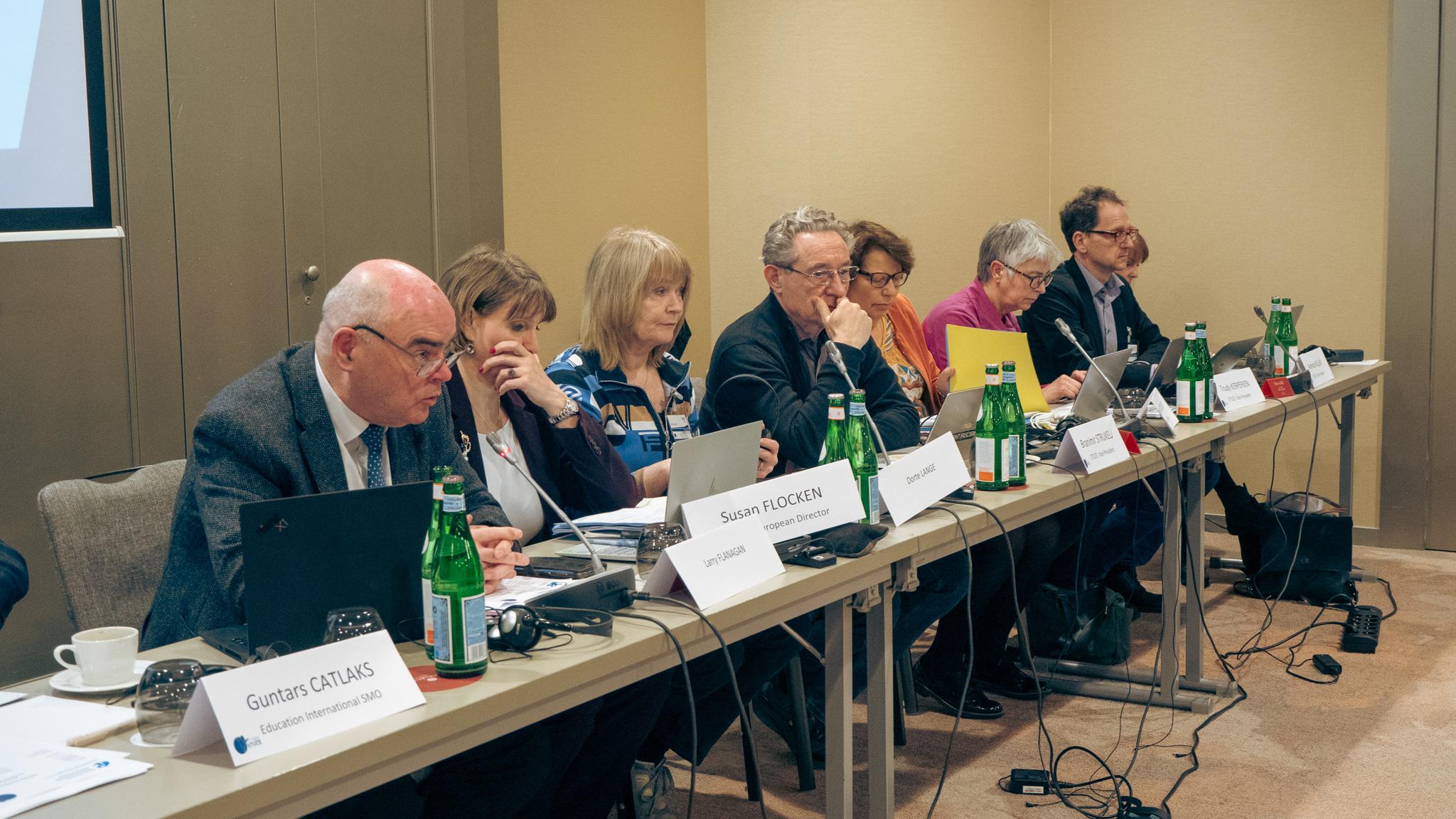14/15 March 2024: critical decisions and solidarity mark the spring ETUCE committee meeting
Published:
The ETUCE Committee convened in Brussels on 14-15 March 2024, addressing urgent topics amid a challenging financial landscape and continuing its mission to bolster the teaching profession across Europe.
The two-day assembly commenced with the recognition of new country seat representatives for Norway (Geir Røsvoll, from UEN), and Turkey (Zülküf Güneş, from EGITIM-SEN). The core of the meeting was highlighted by thoughtful deliberations on navigating the financial challenges for ETUCE, culminating in a vote on options to steer across the current economic challenges, underscoring the Committee’s determination to continue ETUCE’s vital work.
Susan Flocken, ETUCE European Director, briefed members on the statutory and consultative bodies' proceedings and emphasised critical deadlines in the lead-up to the ETUCE Conference taking place in Budva, Montenegro from 26 – 28 November 2024.
The main discussion focused on addressing the rise of the far-right across Europe. Members deliberated on the education trade unions' crucial role in combating this trend, emphasising the importance of democratic cultures in education institutions and the protection of values of equality, inclusion and diversity as well as critical-thinking and professional autonomy within the education systems. Many colleagues reported and shared their experiences at national level, expressing concerns especially considering upcoming national and European parliamentary elections, clearly marking the need for education trade unions to resist and not accept the destruction of social welfare systems.
Updates on the European Sectoral Social Dialogue highlighted the ongoing collaboration with the European Federation of Education Employers (EFEE), including efforts to promoting environmental sustainability and addressing third-party violence and harassment in the workplace.
In working groups, the ETUCE Committee members discussed generative artificial intelligence and its implications for the teaching profession from pedagogical approaches and content creation to ethical considerations and privacy concerns. The outcomes of these discussions are expected to inform ETUCE’s policy paper to be adopted by the ETUCE Conference in November.
Amid these discussions, the committee reaffirmed its solidarity, notably with an update from Kateryna Maliuta-Osaulova, International Secretary of the Trade Union for Education and Science of Ukraine. Her insights into the war's impact on education and teachers in Ukraine underscored the persistent need for support and solidarity across the ETUCE community.
The Committee adopted the position paper of ETUCE on the new EU economic governance framework and the Position on Recognition of Teachers’ Qualifications in the European Union in light of teacher shortages (March 2024)